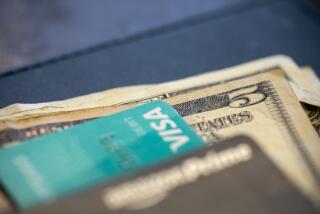Ask Laz: If you get hacked, are you safer with a credit card or debit card?
Bob notes that when something bad happens with his credit cards, he receives a notice from the bank, new plastic and no financial headaches.
“If a bad guy gets into my checking account,” he asks, “Am I still safe?”
The answer is yes -- but up to a point.
ASK LAZ: Smart answers to consumer questions
When it comes to credit cards, the Fair Credit Billing Act stipulates that your liability for any unauthorized use of your card tops out at $50.
But don’t sweat it. if your credit card number is stolen but not the actual card -- the more likely scenario in this age of computer hacks -- you aren’t on the hook for any fraudulent transactions.
Debit card fraud can have more strings attached. Some issuers offer complete protection from fraud. But under the terms of the Electronic Fund Transfer Act, your liability can depend on how quickly you report that something’s amiss.
If your debit card is still in your possession but the number’s out there, you’re protected from any fraudulent transactions as long as you report them within 60 days of your last statement.
If your card is missing, you have to let your bank know within two business days or you’ll be responsible for up to $50 in losses.
If you report the problem after two business days but within 60 calendar days of your last statement, your losses will top out at $500.
Go beyond 60 calendar days and you’re responsible for all the money drained from your checking account.
There’s an obvious reason why protections for credit and debits cards differ. In the case of credit cards, it’s the bank’s money at stake. With debit cards, it’s yours.
Bottom line: Card issuers take their own money more seriously. So be extra careful with yours -- which means keep your PIN safe and a keep a close watch on your monthly statements.
If you have a consumer question, email me at asklaz@latimes.com or contact me via Twitter @Davidlaz.







